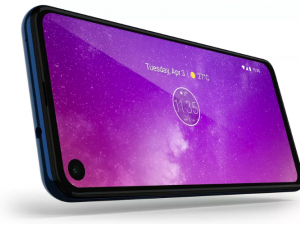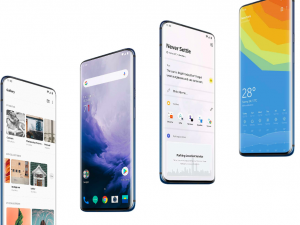Analysts Think Apple’s Smartwatch Share Will Drop This Year
Damien McFerran 03/01/2019 – 2:09pm
But not by much
The smartwatch market is experiencing slow but steady growth, with Apple's products dominating the landscape while Google's 'Wear OS' range struggles to assert itself. However, according to market-foresight advisory form ABI Research, the influx of cheaper rivals from the likes of Samsung and Huawei will chip away at Apple's share, resulting in a stronger market with more options for the consumer.
ABI forecasts that smartwatches shipments will increase from 40 million in 2018 to over 99 million in 2023. Apple’s share of the market in 2Q and 3Q 2018 is predicted to fall to 43.35 percent. That might sound like a grim portent, but Apple's closest rivals – such as Fitbit, Huawei and Samsung – only have around 8 percent each, so Tim Cook's firm is still very much in the driving seat as far as smartwatches are concerned.
"The smartwatch market is a major part of the overall wearables market, offering consumers access to a large number of wearable features, such as fitness tracking, notifications, and heart rate monitoring, from the wrist,” explains Stephanie Tomsett, an analyst at ABI Research. "As the number of flagship and budget smartwatches continues to grow, consumers are increasingly opting for devices from companies other than Apple, such as Fitbit, Huawei, and Samsung. Hence, Apple has seen its market share drop over the past couple of quarters… with so many other smartwatches available with most of the major features of the Apple Watch, at a reduced price, increased battery life, or with greater compatibility with a larger number of smartphone OSs, more consumers are likely to move away from Apple in favour of these other devices."
Indeed, while the challenge from Google's Wear OS has diminished, the rise of fitness trackers has played into the hands of companies like Fitbit and Samsung, both of which have their own smartwatch platforms which offer a cheap route for consumers while maintaining the wide compatibility that Apple's device lacks.
Pricing is another issue, with the Apple Watch costing much more than its rivals. Of course, it offers more in terms of functionality, but as we've seen in the smartphone sector, consumers are often happy to forgo certain features in order to hit a more manageable price point.
Still, Apple is expected to retain control of almost 50 percent of the market, which isn't bad going. The Apple Watch is still seen as the leading choice for serious smartwatch owners, and that's unlikely to change any time soon – even with the rise of cheaper, fitness-based rivals.




